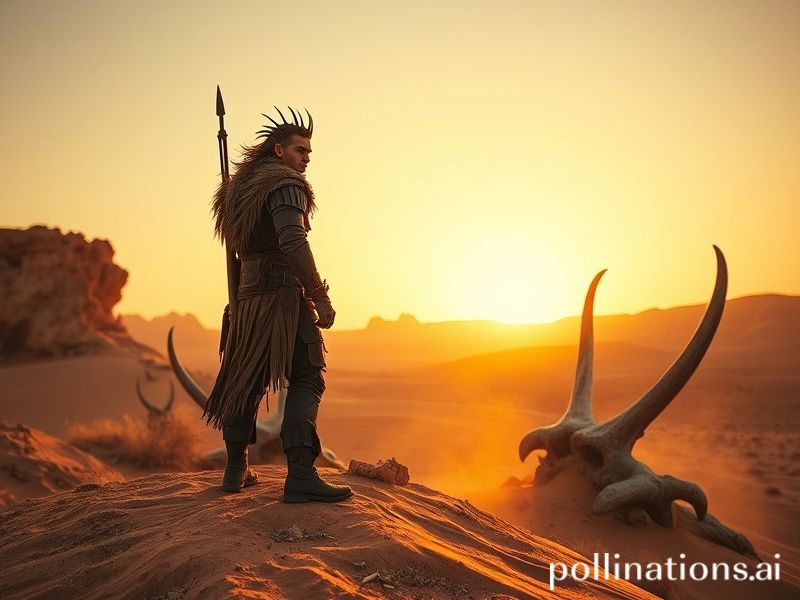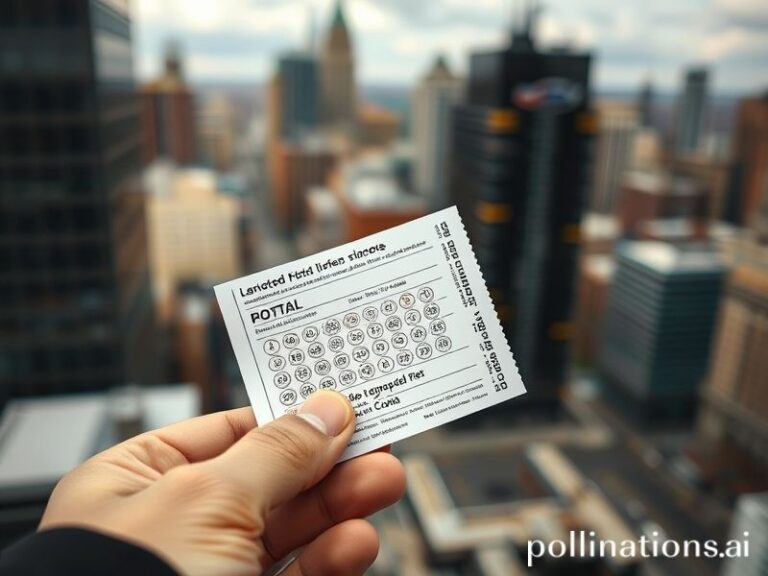Global Monster Hunter Phenomenon: How Virtual Beast-Slaying Became Humanity’s Favorite Escape from Reality
**When the Real Monsters Wear Badges: The Global Phenomenon of Monster Hunter Outlanders**
In a world where actual monsters roam free—think tax-evading tech billionaires, climate-change-denying politicians, and that guy who invented pineapple pizza—it’s oddly reassuring that humanity’s latest cultural obsession involves tracking down fictional creatures. The Monster Hunter Outlanders phenomenon has spread across the globe faster than a TikTok dance craze, proving that when reality becomes too unbearable, we’ll happily retreat into worlds where the monsters are at least honest about wanting to eat us.
From Tokyo to Timbuktu, these digital beast-slayers have formed what anthropologists might generously call “communities” and what the rest of us might recognize as “glorified support groups for people who’ve given up on dating.” The international appeal is undeniable: in countries where citizens face actual existential threats, pretending to hunt imaginary dragons offers a delightful respite from hunting for affordable housing or functional democracies.
The economic implications are staggering. While traditional industries collapse like a house of cards in a hurricane, the Monster Hunter economy thrives. South Korean gaming cafes have reported revenue increases of 300%, proving that when your country is technically still at war, virtual monster slaying beats actual military service for entertainment value. Meanwhile, European nations grappling with energy crises have seen citizens choosing between heating their homes and upgrading their hunting gear—a choice that speaks volumes about human priorities when the frost giants of climate change come knocking.
The cultural exchange has been equally fascinating. American players complain about “toxic” international teammates, blissfully unaware of the irony that they’re describing their entire foreign policy legacy. Japanese hunters maintain their characteristic efficiency, organizing raids with the precision of a bullet train schedule, while Italian players have somehow turned monster hunting into a three-hour lunch break with occasional sword swings. The French, naturally, have declared the entire game “philosophically inferior” while continuing to play it religiously.
What’s particularly striking is how the game mirrors real-world geopolitics. Wealthy nations’ players hoard resources while developing countries’ hunters must make do with inferior equipment—a digital reflection of global inequality so accurate it would make Thomas Piketty weep into his copy of Capital. The game’s “cooperative” missions often devolve into wealthy players exploiting poorer ones for cheap labor, suggesting that even in fantasy worlds, capitalism finds a way to ruin the party.
The psychological implications haven’t escaped international observers. Scandinavian countries, those perennial overachievers in happiness indices, report that Monster Hunter serves as “therapeutic intervention” for seasonal depression. This is perhaps less surprising when you consider that hunting digital monsters in a frozen landscape isn’t dramatically different from their actual Tuesday afternoons.
Environmentalists have noted the bitter irony of millions obsessing over virtual ecosystems while the real ones burn. “At least when these monsters go extinct, it’s intentional,” remarked one particularly jaded conservationist, watching players gleefully eradicate digital species while actual rhinos disappear faster than honest politicians.
As the phenomenon spreads to developing nations, we’re witnessing the democratization of escapism. Why confront actual problems when you can pretend to solve imaginary ones? It’s globalization’s final gift: the opportunity for everyone, regardless of nationality or economic status, to collectively ignore reality together.
In the end, perhaps the true monsters aren’t the pixelated beasts we’re hunting, but the systems that make such elaborate fantasy necessary. Or maybe we’re the monsters, and the joke’s on us—spending billions to virtually save worlds we’re actively destroying in reality. But hey, at least we’re doing it together, united in our spectacular ability to prioritize dragon-slaying over actual problem-solving. In today’s world, that’s practically a happy ending.







